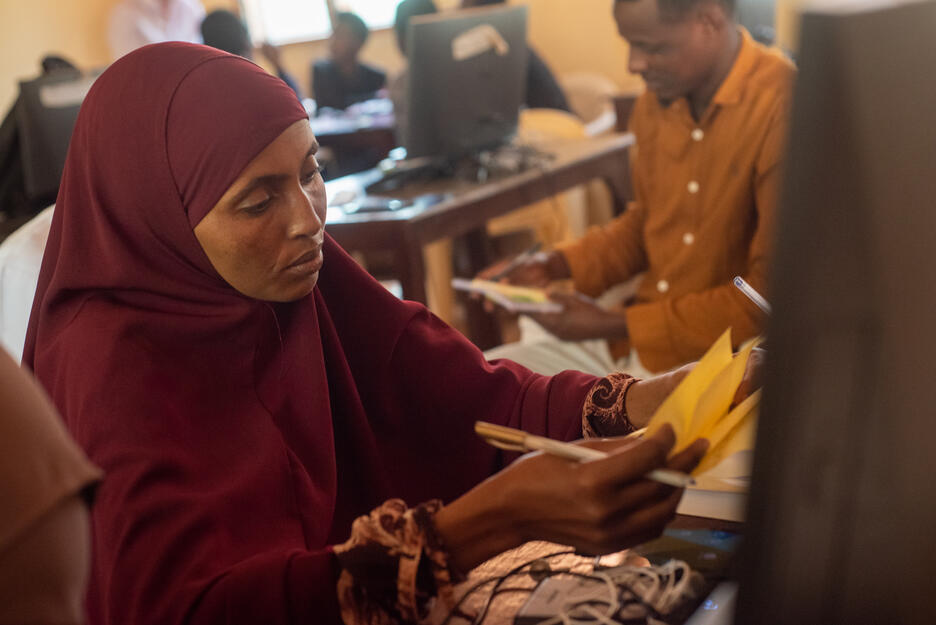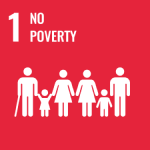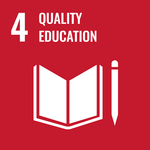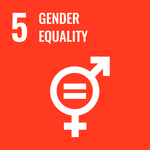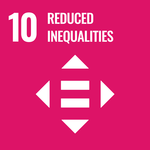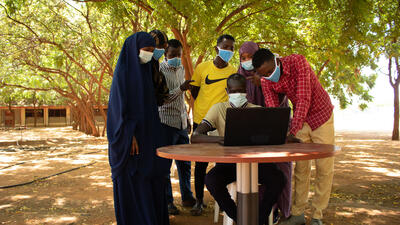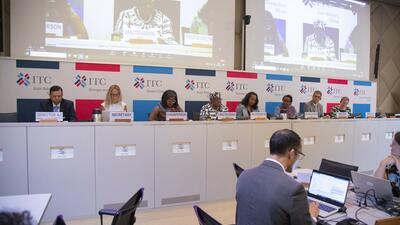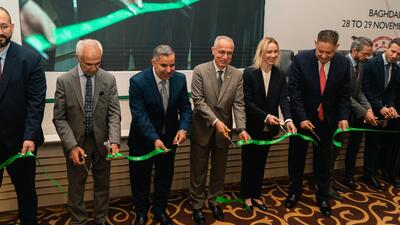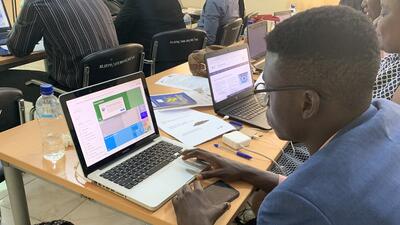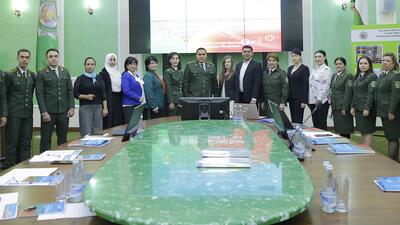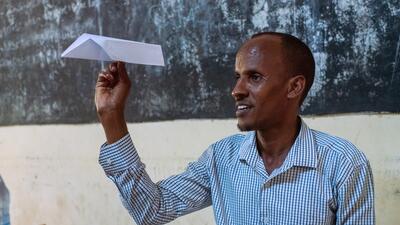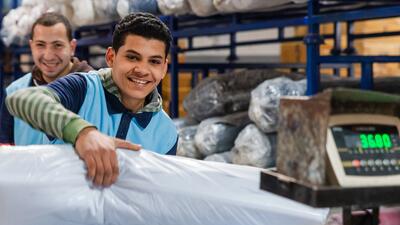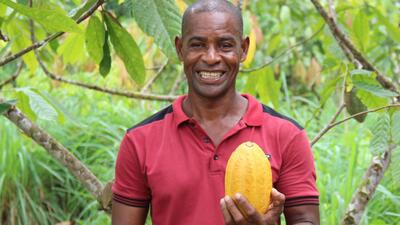
Case study: Refugees and youth join the digital freelance economy
The ‘four Cs’ – COVID, climate, conflict and cost-of-living – greatly tested small businesses around the world and set back the Sustainable Development Goals. This case study, from the ITC Annual Report 2022, highlights how the International Trade Centre helped entrepreneurs find new ways to prosperity through trade.
The challenge
The Dadaab refugee complex in Kenya’s Garissa County was once deemed the world’s largest refugee camp. It was first established in 1991, when refugees fleeing the civil war in Somalia crossed the border into Kenya, and its population swelled to more than 400,000 in 2014. More than two decades later, the refugee and host community populations still struggle to survive, living amid the effects of a protracted emergency with no clear end in sight.
Indeed, an uncertain policy scenario in Kenya and an extended emergency situation in Somalia have triggered protection, security and livelihood challenges. These challenges have major implications on the dignity, safety and well-being of the more than 200,000 refugees who still live at Dadaab.
The solution
In 2022, the Refugee Employment and Skills Initiative and ABLI-G (Area Based Livelihood Initiative–Garissa) project continued to provide training, mentorship and ecosystem building to support the economic and social inclusion of refugees and host communities in Kenya.
ABLI-G is a three-year project funded by the European Union Trust Fund for Stability and Addressing the Root Causes of Irregular Migration and Displaced Persons in Africa. The project helps refugees and local individuals improve and diversify their skills so they can generate income. This work helps to circumvent, but not necessarily dismantle limited movement. ABLI-G aligns closely to the work already done under RESI and continues efforts to develop the digital service and artisanal value chains in Dadaab and Garissa County.
The RESI and ABLI-G Dadaab project used innovative methods to build self-reliance and economic resilience in protracted humanitarian situations. The project supports entrepreneurship and business development for income generation to address the rapid phase-out of humanitarian assistance in the Dadaab camps and help Somali refugees maintain their well-being in the immediate future, including by supporting returnees in Somalia.
The results
Efforts included strengthening public–private partnerships in Garissa County by promoting market linkages with private companies such as Amazon Web Services through its Amazon Mechanical Turk (MTurk) platform, which enables people to perform simple tasks and earn money online. This partnership enabled youth from the refugee and host populations to earn more than $60,000 through digital freelancing.
Shafee Noor Mohamed, a host community member of the Dadaab Collective Freelancing Agency and participant in the MTurk assignment, reflected on the impact of this work:
More than 20 people from the Dadaab displaced populations and host communities also received tailored mentorship and market connection packages designed to help them join the digital freelancing economy and build sustainable livelihoods for themselves and their families. This assistance was especially important for women.
The future
Although ABLI-G is ending, ITC is expanding its refugee and migration activities in 2023. New countries and regions are being added – Rwanda and Pakistan, for instance – and work will continue in Kenya with a new strategic direction, through the Refugee Empowerment through Markets Initiative (REMI).
ITC is developing new approaches to meet the different needs of refugees, internally displaced people and returnees and expanding its coverage of these populations. These new projects ensure that past and future participants will be supported with employment opportunities.






